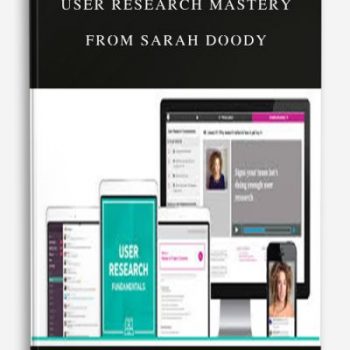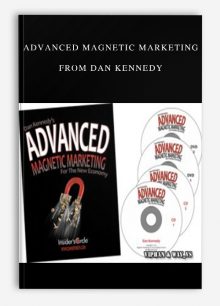
Daniel Pink Teaches Sales and Persuasion
Description:
With four NYT bestsellers, Daniel Pink is an influential voice in the evolving landscape of sales and motivation. Now the author of To Sell Is Human teaches you science-backed principles for effective and ethical sales and persuasion. Learn tactics for achieving better outcomes in any interaction-at home or at work-and tools for framing your message, navigating cognitive biases, and pitching ideas, products, or yourself.
Here’s what you’ll get:
1. Meet Your Instructor Daniel Pink Teaches Sales and Persuasion
Dan introduces himself, the class, what you will learn, and explains why it’s critical for everyone to learn how to persuade effectively and authentically.
2. Sales Trends Daniel Pink Teaches Sales and Persuasion
Sales has changed more in the last 10 years than in the previous 100. Learn the most important developments and how they affect your ability to persuade.
3. Attunement: Finding Common Ground Daniel Pink Teaches Sales and Persuasion
To persuade effectively, you need to get inside the head of your counterpart and understand their perspective. Learn how to attune yourself to their state of mind and cultivate a meaningful connection.
4. Serve Your Audience Daniel Pink Teaches Sales and Persuasion
Daniel teaches you how putting a purposeful, personal touch on your persuasive encounters can make all the difference.
5. Exercise: Creating a Discussion Map Daniel Pink Teaches Sales and Persuasion
Daniel shares his favorite trick for identifying the best point of influence in a group dynamic.
6. Clarity: Making Your Message Count
Learn how strategic communication can mean the difference between success and failure in an information-saturated era.
7. Getting Others to Act
The key to getting someone to do something is to make them think it was their idea. Learn about the dangers of coercion and how to persuade others by finding common ground instead.
8. Create a Connection by Mimicking
Humans are natural mimickers. If you’re aware of how this tendency can connect you to someone else, then you can deploy it strategically.
9. Persuasive Framing
Discover how taking advantage of innate glitches in the human mind can help you craft your messages for maximum efficacy.
10. Pitching Like a Pro
Daniel explains why the elevator pitch is a thing of the past and shares a variety of pitches you can use to sell an idea, a product, or even yourself.
11. Exercise: Asking for a Raise Daniel Pink Teaches Sales and Persuasion
Working with a counterpart in a real-time demonstration, Daniel shows you the best way to manage subordinates and how to get that raise you’ve been hoping for.
12. Buoyancy: Develop a Resilient Mindset
Learn how to remain afloat in a sea of rejection as Daniel shares some of his favorite tips for staying positive.
13. Introvert, Extrovert, or Ambivert
Despite what you might think, extroverts are not the best salespeople. Discover what personality type actually sells best and how to cultivate that optimal mentality.
14. Persuade Yourself: How to Self-Motivate
Learn what it takes to persuade yourself.
15. Using Timing to Become a Better Persuader
We often focus on what we need to accomplish and how to get everything done—but Daniel explains why we also need to focus on the “when” of these decisions.
16. Beginnings, Middles, and Endings
Different stages of work require us to behave differently. Understanding more about those behavioral differences allows us to perform better.
Business online course
Information about business:
Business is the activity of making one’s living or making money by producing or buying and selling products (such as goods and services).
[need quotation to verify] Simply put, it is “any activity or enterprise entered into for profit.
It does not mean it is a company, a corporation, partnership, or have any such formal organization, but it can range from a street peddler to General Motors.”
Having a business name does not separate the business entity from the owner, which means that the owner of the business is responsible and liable for debts incurred by the business.
If the business acquires debts, the creditors can go after the owner’s personal possessions.
A business structure does not allow for corporate tax rates. The proprietor is personally taxed on all income from the business.













Reviews
There are no reviews yet.